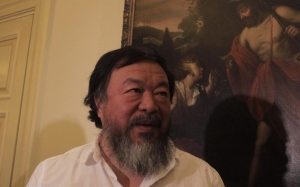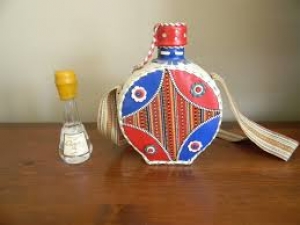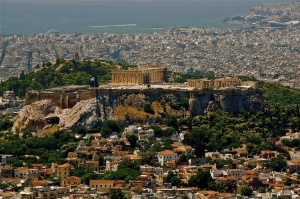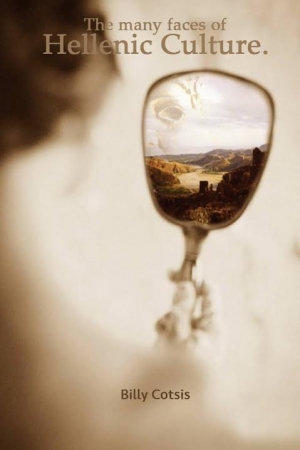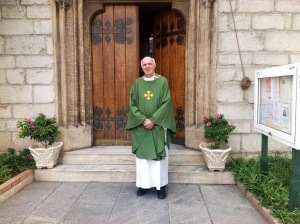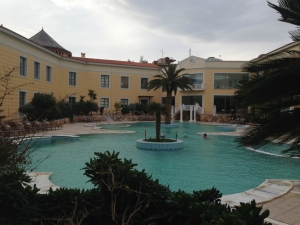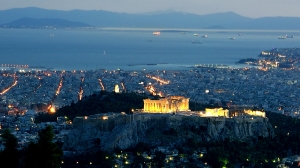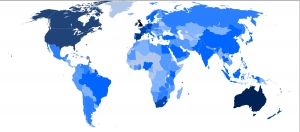XpatAthens
Chinese Artist Ai Weiwei Sets Up Studio On Lesvos - Highlights Plights Of Refugees
What You Need To Know About Greek Raki (Tsikoudia)
Raki comes from grapes
Simply put, Raki comes from byproducts created from the wine making process. After the grapes are pressed and the juice is stored so that it can begin fermenting, there’s a lot of leftover plant material. Greeks are resourceful people and they don’t let anything go to waste!
The resulting skins, twigs, and mash, which is referred to as pomace, is stored for around six weeks before it’s distilled into Raki. In fact, as long as the plant material is edible, it can eventually be distilled into Raki. Pictured here is an old fashioned distiller that is still used today to make this alcoholic beverage in many parts of Greece.
To read more, please visit: Greek Boston
Refugees Turn Life Vests Into Handbags On Lesvos
To read more, please visit: ekathimerini
Vote For Athens As The ‘European Best Destination 2016′
For 7 years running, you have been invited to select the best European destination. From Amsterdam to Zadar, select which tourist destinations you'd like to be featured the most in 2016!
After Bordeaux in 2015, we encourage you to select your favourite European destination for 2016. The process is simple. There is no need to register ~ with just one click, your vote is in!
The European Best Destination 2016 is an event organised by the European organisation "European Best Destinations".
http://www.europeanbestdestinations.com/best-of-europe/european-best-destinations-2016/
Birthplace of philosophy, democracy and drama, the city of Athens is not only an open-air museum of world-class cultural heritage attractions but also a contemporary metropolis with an urban personality. Named after the most benevolent Greek Goddess, Athena, the goddess of wisdom and inspiration, Athens has always been at the cultural fore.
With equal measures of grunge and grace, Athens merges the past with the present in the most slender way! A city of paradoxes and great contrasts, in the country that first invented the courtesy and generosity towards people who are far from their home, hospitality (xenia).
An intellectual beacon of the ancient world with spectacular Mediterranean landscapes bathed in the renowned light, Athens is a sophisticated cosmopolitan hub with delicious gastronomic delights, electrifying nightlife, creative vibes and a booming art scene.
From the iconic Acropolis, rising above the city, to charming up and coming neighborhoods and contemporary art galleries, the city of the Classic Marathon and the Olympic Games is a majestically quirky clash of past and present.
One of the world's oldest cities with a recorded history of 3,500 years, the Greek capital is constantly undergoing urban renewals to keep up with the evolution of time. Athens lives up to all the hype!
http://www.europeanbestdestinations.com/best-of-europe/european-best-destinations-2016/
The Many Faces Of Hellenic Culture By Billy Cotsis
Available on Amazon in print and Kindle version.
Chaplain Of Greater Athens To Be Awarded MBE
Thermal Spa In Evia
Best Spots For Counting The Stars In Athens
Verdant Ardittou Hill lies in the centre of Athens just above Kallimarmaron Stadium. Of enormous archaeological value due to its position, Ardittou Hill is a favorite spot among Athenians for romantic strolls as well as a great spot for jogging. It probably has the best views of the Acropolis, Lycabettus Hill, and the Columns of Olympian Zeus. A night walk along its cool paths reveals many charming secrets, both ancient and modern. Continuing along these paths brings you to Mets, an area with a growing reputation for fun and entertainment. What better way, in fact, to end your meander down lovers’ lane than with a drink in-hand soaking up the atmosphere with other Athenian fun-seekers!
Climbing up the picturesque steps of Kallidromiou Street in Exarhia, picking your way through the playfully cunning cats who’ve made this place their domain and admiring neoclassical buildings of exceptional beauty, you will find yourself on Strefi Hill. This particular hill is one of the favourite haunts of the Athenian young, and it’s not uncommon for parties to be held there, just below the little stone theatre. The night, as we all know, is made for romance, but if you prefer something less intimate, during the summer months you have the option of “Exostrefis”, one of the best known restaurants in Athens which serves excellent food and wine. The panoramic view of the city from the hill is invigorating, its trees, shrubs and flowers offer a breath of cool fresh air.
Perhaps the most iconic hill in Athens, second only to the Acropolis, Lycabettus is the highest point of the Athens basin, standing at 227 metres above the city. Access to this wonderful hill can be on foot but the most popular way is the picturesque cable car. Romanticism without the weariness of the climb and the whole of Athens at your feet! Atop the hill of Lycabettus sits St. George’s chapel in its whitewashed splendor, as if on permanent loan from the Cyclades. Before you decide to visit the hill, check if there is a concert on that day, as the theatre of Lycabettus is one of the most popular open air venues, and its stage has hosted top acts from the international music scene. However, even without musical accompaniment the climb to the top of Lycabettus is well worth it because of the unrivalled view when you get there. Sprawling Athens is at once tiny and vast, its myriad of lights is a starscape to match the heavens.
Named after the monument discovered there, Philopappou Hill is one of the most beautiful spots in Athens. With a strong flavour of ancient Greece, full of olive trees and in full view of the Parthenon, Philopappou Hill seems to encapsulate huge swathes of Greek history, ancient and modern, in a single image. Besides the Parthenon, you can cast your eyes down on the Acropolis Museum, the Odeon of Herodes Atticus, the whole of Apostolou Pavlou Avenue and the Observatory. On a clear day you can see the sea. Especially at night Philopappou Hill is transformed into an Athenian beacon, its monument bathed in a single orange spotlight. After a romantic walk on Philopappou, there are many districts resting in its shade to discover. Theseion, Monastiraki, Koukaki, Petralona. Pick one and have fun until the stars disappear from the sky.
On the southernmost tip of Greater Athens lies the headland of Sounion, with its iconic Temple of Poseidon, which adorns the clifftop 60 metres above the sea. Sunsets at Sounion are cinematic to say the least and have served many a passionate liaison with a sumptuous mauve and orange backdrop. So if you are in Athens, don’t miss the opportunity to visit Sounion at dusk so you too can marvel at the sun’s majestic descent into the Saronikos gulf and – if you are lucky – perhaps a bright full moon rising a little later on. In the summer months don’t miss out on a night dip on one of the nearby beaches. The sea, an ancient floodlit temple and you. A leisurely jaunt down the coast from the city and this paradise can be yours.
Netflix Available To Greek Subscribers
The Worst Places To Be An Expat
4) Italy
Who doesn’t love Italians? Unfortunately for Expats, love might not be enough in this beautiful country. Expats typically find their paycheques are lower than they were at home, and that jobs don’t offer as much in the way of a rewarding career. Italy also has higher taxes than many other countries, so that already lower paycheque is being dinged by more taxes.
5) United Kingdom
Surprisingly, the Queen’s country has a low overall quality of life. Across the board, from settling in and making friends, to finding stable employment, much seems to be missing from life in the UK. If you are not part of the royal family (or obsessed with the adorable royal babies) you may want to look elsewhere as an Expat.

